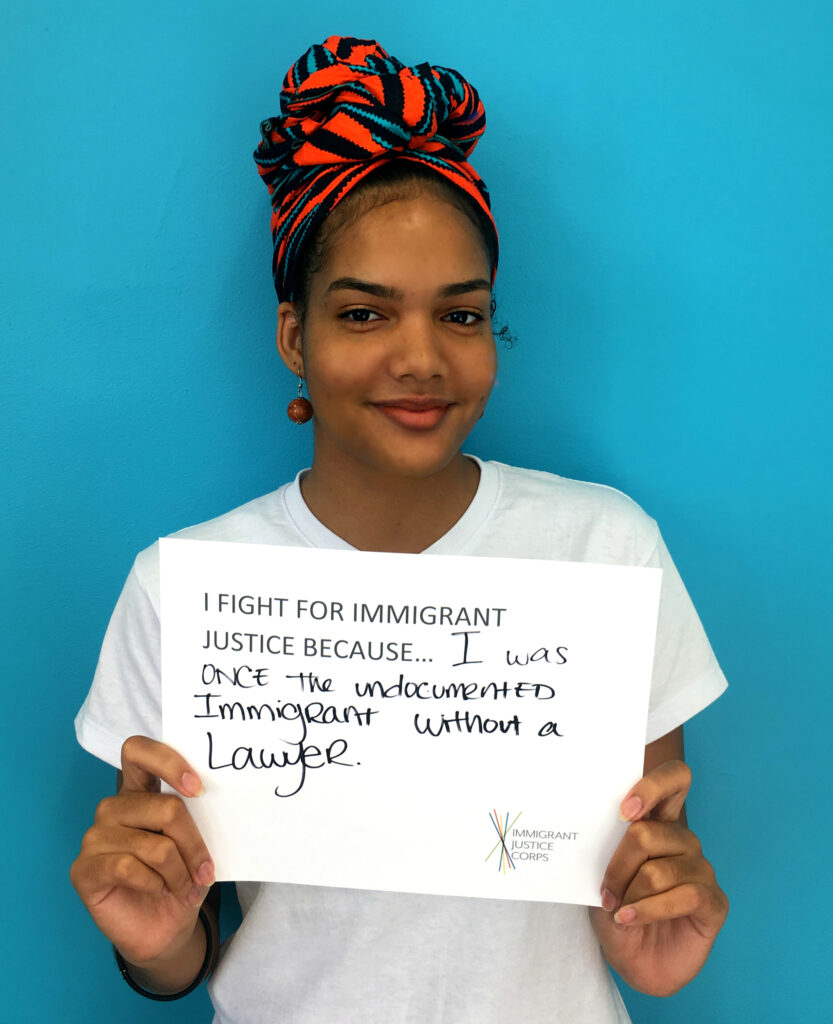Fellow feature: Chrisline Pierre
At a time when asylum seekers with viable claims are being deported from the U.S. because they are unable to find counsel, the work of IJC Fellows is more important than ever. Chrisline Pierre is a 2022 Community Fellow working at Catholic Charities Community Services, where she supports Haitian immigrants through the Haitian Response Initiative.
Community Fellows are recent college graduates who are responsible for their own caseloads under the supervision of an attorney. Community Fellows like Chrisline meet with low-income clients, conduct legal screenings, and complete applications for a broad range of immigration benefits. During the course of their fellowship, Community Fellows become Department of Justice accredited representatives, allowing them to directly represent clients before the United States Citizenship and Immigration Services.
A year-and-a-half into her fellowship, Chrisline shares her experience representing a young client. She talks about the importance of building a rapport with her client and reflects on how this case has made her a better advocate for undocumented youth.
Recently I got to work on a Special Immigrant Juvenile Status (SIJS) case for the first time. SIJS is an immigration classification available to certain undocumented immigrants under the age of 21 who have been abused, neglected, or abandoned by one or both parents. Most of my experience so far has been on asylum and Adjustment of Status cases with clients that were older than me. For my SIJS case, I am working with a client who is 20 years old. They are applying for SIJS based on abandonment by both parents.
Prior to working with the client, the supervising attorney gave me some pointers on how to approach our meetings. In SIJS cases, she pointed out that we are balancing getting our client to share information that can be traumatic for them to relive. Oftentimes with younger clients, they have a wall up and don’t feel ready to divulge every single detail about their life. Or in some instances they do not know what information can be relevant to their case. In that regard, I knew I had to focus on creating a calm atmosphere for my client to be at ease.
As my client was closer to my age, I knew there was common ground we could connect on to hopefully make it easier for them to communicate with me. When we met to work on their declaration, I focused more on getting to know them, their hobbies, and also sharing things about myself. We talked for twenty minutes about various subjects like school, sports, food, and life in New York City. This definitely helped break the ice.
Afterwards, I began to ask questions geared towards their childhood in Haiti and relationship with their parents. It was during these moments that I noticed when it came to certain questions related to their parents and the trauma of their abandonment, the client would give one sentence answers and look down a lot. When I saw this, I would quickly move on to a different topic, in particular their happy memories from their childhood. For example, they loved playing sports like soccer. Additionally, I would ask them questions about their sponsor, whom they knew since childhood. In those moments the responses were very detailed and clear.
Thus far, my time working on this case has made me a better advocate for undocumented youth. I learned how to use my personal communication skills to catch specific social cues to help guide the structure of my interactions with youth migrants. Additionally, I was able to get an introspective look into the challenges that many undocumented youth face from the trauma of immigrating to the United States.
